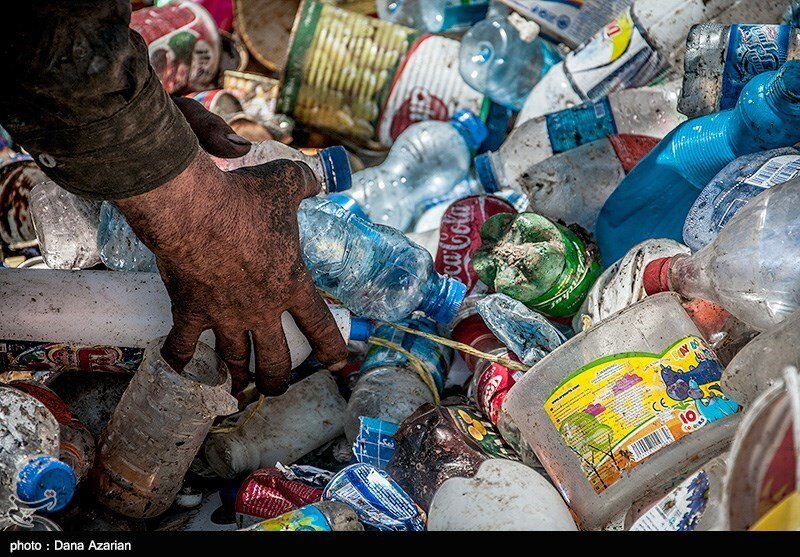Comprehensive waste management plan to be prepared for Tehran

TEHRAN – A comprehensive plan for waste management in the capital will be prepared in a collaborative initiative between the waste management organization and the urban research and planning center, both affiliated to Tehran Municipality.
Ali Abdoli, head of the waste management organization, made the remarks in the first conference of environmental challenges centering on plastic waste held on July 14 in Tehran.
“Certainly, waste management requires the necessary infrastructure and planning, so we decided to develop a scientific and specialized plan in this regard in cooperation with the urban research and planning center,” he said.
“So far, a contract has been signed with a research company to start preparing the plan,” he added, ISNA reported on Sunday.
“With a comprehensive waste management plan, we can take steps towards scientific and optimal management of waste in the capital,” he further highlighted.
He went on to say that domestic solid waste disposal has a large economic value and will yield financial benefits if is reused.
“Today, as citizens, we must strive to purchase goods exactly in accordance with our needs,” he noted, adding, unfortunately, there are currently consumable products in waste landfills.
However, during last year due to various factors such as rising commodity prices, waste generation in Tehran has dropped by 1,400 tons per day, he highlighted.
In this regard, the efforts of the municipalities to prevent the transfer of massive wastes to the landfills and paying attention to waste segregation at source are not deniable, he added.
Abdoli also stated that the role of citizens in the production of waste is certainly very effective and they can play a key role in managing their consumption in the field of waste production.
“Therefore, we need to promote the culture of using less plastic containers”, he said, adding, undoubtedly, citizens can segregate the waste at source, minimize waste production and reduce much of waste collection and management costs.
Meanwhile, Sadr-o-din Alipour, the director of environment and sustainable development department of Tehran Municipality, said that the use of plastic is on the rise among Iranians, as over 3,000 tons of plastic waste is generated per day in the country, which reaches 1 million tons in a year.
In April, Kiyomars Kalantari, director general of Tehran province’s department of environment, said that everyday 8,000 tons of waste is being transferred to landfills in Tehran but not even 1 kilogram of it is recycled as waste segregation at source is not being practiced.
Scheme to reduce disposable plastic use
During the event, Fereydoun Heydari, the mayor of Tehran District 5, announced that a scheme will be implemented in the district to reduce the use of disposable plastic.
Concerns raise for waste management among the municipality and Tehraners, as disposable plastic containers, which require decades to be recycled, are widely visible in every corner of the city, he lamented.
“It is essential to change plastic use patterns, and in this regard, we need to increase awareness of citizens about the effects of releasing single-use plastic in the environment,” he suggested.
“In the past, people used their own non-plastic shopping bags, paper envelopes or baskets instead of plastic bags, however, with the development of new societies, 1 percent of the total waste generated in the country account for plastic waste, which has dire consequences on the environment,” he regretted.
“As a role model we try to develop an optimal program for cultural development which mainly centers on persuading the residents to reduce the consumption of plastic containers,” he concluded.
While plastic has many valuable uses, we have become over reliant on single-use or disposable plastic with severe environmental consequences. Around the world, 1 million plastic drinking bottles are purchased every minute. Every year we use up to 5 trillion disposable plastic bags. In total, 50 percent of the plastic we use is single use, according to World Environment website.
NGOs must cooperate
Ali Moridi, head of soil and water office at the Department of Environment (DOE), told ISNA on Sunday that NGOs must help the executive bodies in decision making for special issues which need special skills.
He further called on the NGOs to join hands in both fields of raising public awareness and waste management planning.
This year, a sufficient budget has been allocated for waste management and NGOs can cooperate in the implementation process, he concluded.
Waste management, a beneficial issue
Eskandar Omidinia, deputy chief of DOE, also said that waste is of great importance for the DOE, as waste management can bring financial benefit for the country while increasing the environmental safety.
He went on to say that many countries around the world make $14 profit per dollar spent on waste management.
“As well as water and soil contribute to public health and quality of lives, waste should not be overlooked either,” he noted.
“Today's waste condition is the result of our individual's performance, and the advent of new technologies without culture and education has caused many disruptions,” he said, adding, “once we succeed when waste management is linked with the people’s income generation.”
The main priority of the DOE is to foster public awareness on waste management issues based on a sustainable development approach, he further highlighted.
Waste management in metropolises, especially in northern cities of the country, has become a serious issue for the past few years. Unfortunately, waste segregation at source is not being fully practice in the country.
Effective segregation of wastes means that less waste goes to landfill which makes it cheaper and better for people and the environment. It is also important to segregate for public health. In particular, hazardous wastes can cause long term health problems, so it is very important that they are disposed of correctly and safely and not mixed in with the normal waste coming out of home or office.
FB/MG
Leave a Comment